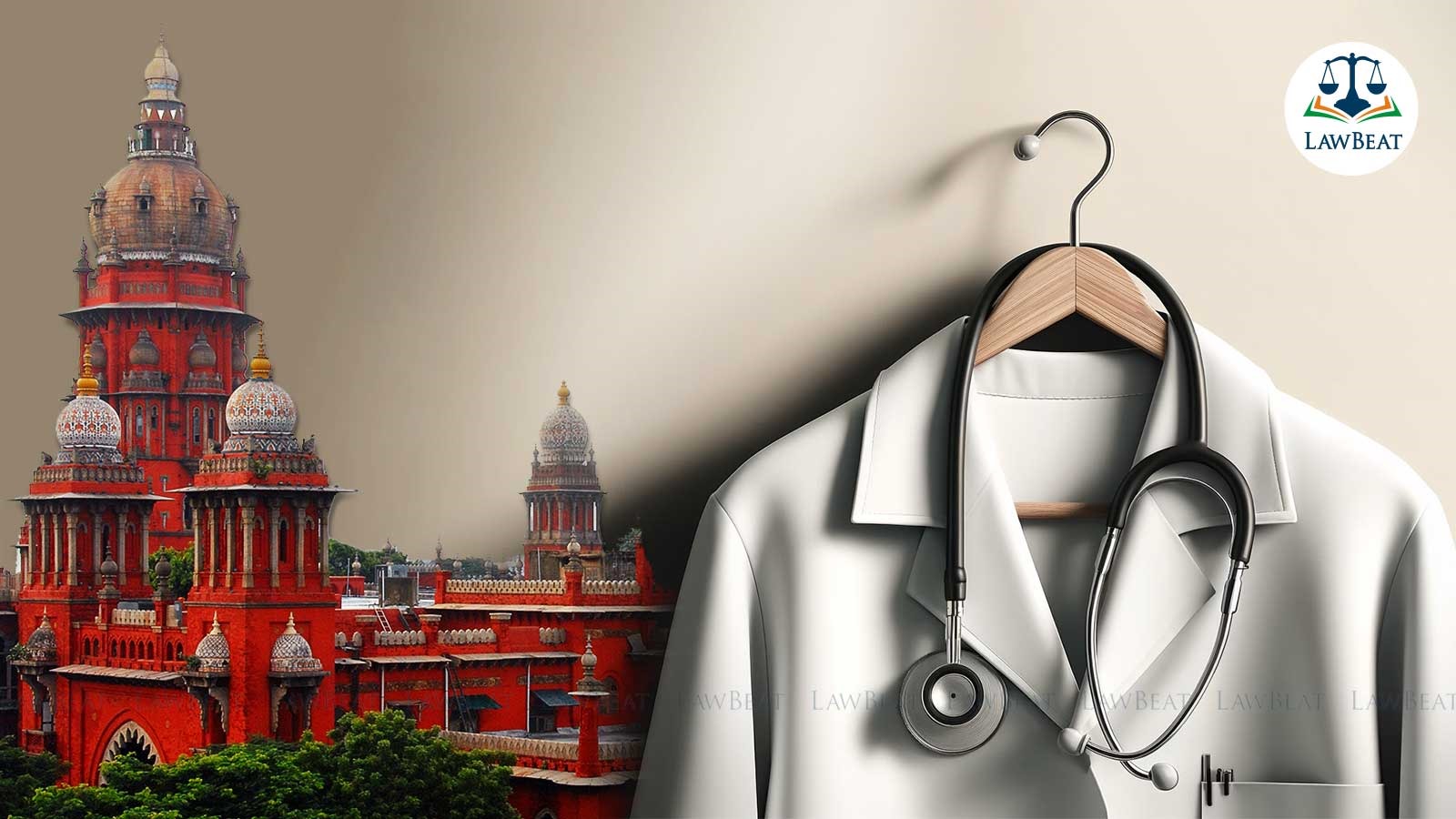"Bound by Bonds": Madras HC Dismisses PG Doctors' Petitions Against Government Hospital Appointments

The doctors challenged their appointments as Assistant Surgeons (Specialists) under Rule 19(1) of the Tamil Government Servants (Conditions of Services) Act, 2016, contending that their Covid-19 service should count toward meeting the two-year obligation in the bond agreement
In a bunch of petitions by doctors opposing their appointments in government medical institutions, the Madras High Court backed the government's aim to ensure that doctors fulfill their obligation to serve the underserved after receiving subsidized training.
"it is natural that the Government desires to ensure that these Doctors, who have underdone Post Graduate training at a very low cost by utilizing the poor people, serve the poor and the needy," said the single judge bench of Justice SM Subramaniam.
The doctors contested their appointments as Assistant Surgeons (Specialists) under Rule 19(1) of the Tamil Government Servants (Conditions of Services) Act, 2016 arguing that their service during the Covid-19 pandemic should count towards fulfilling the two-year service requirement outlined in the bond agreement.
The high court noted that upon admission to a Post Graduate Medical Course, candidates sign a bond committing to serve in government medical colleges and hospitals for two years upon completion of their studies and this agreement is made because the government spends a considerable amount on the education of these Post Graduate Medical students.
Court said that the candidates for a post graduate medical course are well-qualified registered medical practitioners with adequate knowledge and only after carefully reading the bond and understanding it and also being fully aware of the terms and conditions of the bond, they sign the bond. They are not forced to sign the bond, the bench emphasised.
Regarding the present petitions, court said that "such an attitude of the doctors if allowed, will encourage the attitude of not paying attention to those poor people at whose expense they have been educated, which is opposed to public interest and unacceptable".
"The public has the right to expect the Specialists to utilize their service during their training for the benefit of the sick, poor and the needy", court stressed.
Further, court said that providing decent medical treatment is an integral part of Article 21 of the Constitution of India.
If these doctors after undergoing medical specialty courses, refuse to work in government hospital, they infringe the fundamental rights of the poor and needy patients, who all are undergoing treatment in government hospitals, court stressed.
It held, "Thus, such an approach of the doctors cannot be appreciated".
Court also refuted the precedents presented by the petitioners in support of their claims. Court said that "the ratio of any decision must be understood in the background of the facts of that case. It has been said a long time ago that a case is only an Authority for what it actually desires and not what logically follows from it".
Court stressed that since the petitioners had admittedly signed the bond and accepted the terms and conditions stipulated therein, they were not entitled to claim any concession for further reduction of period stipulated under the bond conditions.
"Therefore, the petitioners have to serve in Government Medical College and Hospitals as per the appointment order in compliance with the conditions and after completion of the period stipulated, appropriate decision may be taken by the respondents," the court decided while dismissing the pleas.
Case Title: S.Sahana Priyankaa and Others v. State of Tamil Nadu and Others and connected matters
